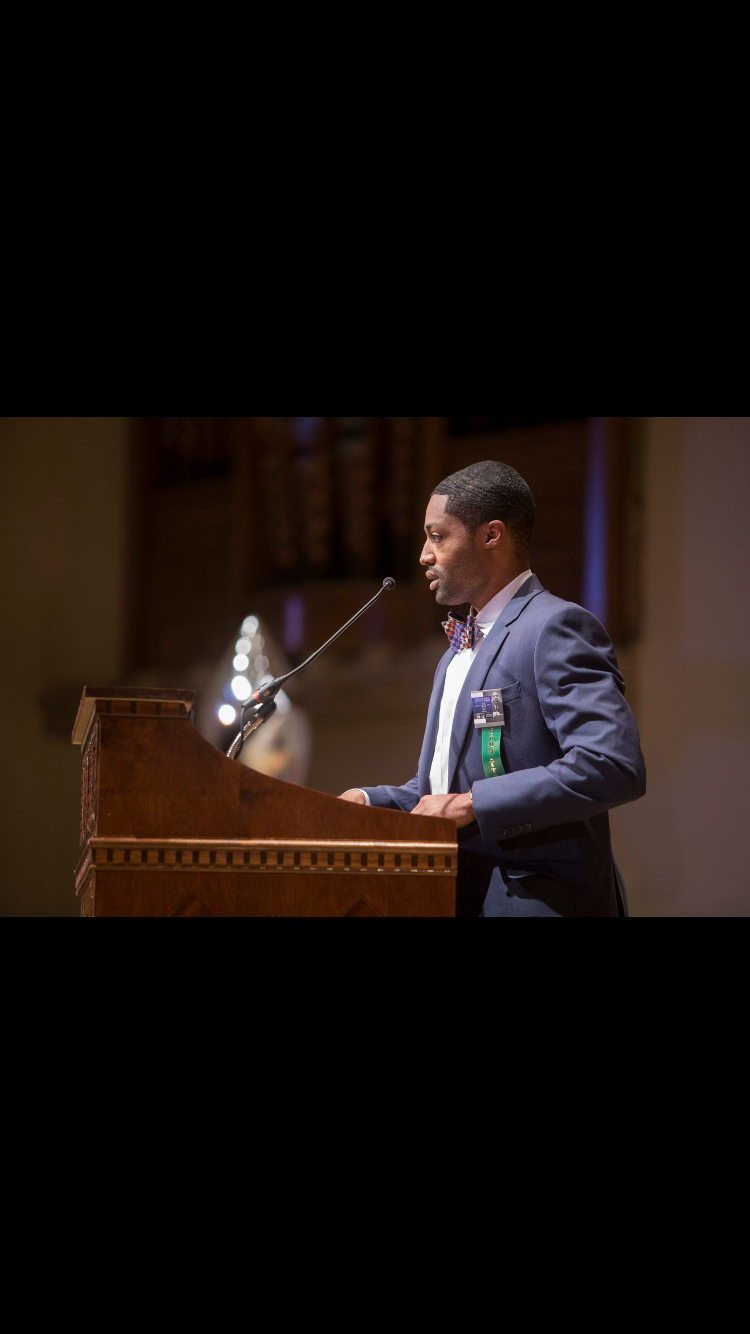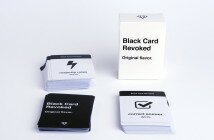I’M NOT BLACK. I’m African. I’M NOT BLACK. I’m Cablinasian. I’M NOT BLACK. I’m just… American. Tiger Woods, Stacey Dash, and Raven-Symone are just a few of the seemingly many people of color to attempt to distance themselves from “Black”.
Some would rather have the proper hyphenation rather than be thrown into a melanin potluck while others want to drop the annotation completely and just be one nation. There is an ongoing struggle between diversity and inclusion within the states, seemingly forcing people to choose one or the other. Topics such as these are best approached by professionals with extensive backgrounds. Luckily, Columbus houses one of the brightest, Dr. Almar Walter.
 Dr. Walter is Capital University’s Director of Diversity and Inclusion. Since coming to Capital in 2014 Walter has been front and center on many racial challenges the university has faced and is heading a groundbreaking Diversity Office expansion many thought was a passing fancy at best. But even before his success at Capital, Walter was making cultural strides at other Universities as well as around the world.
Dr. Walter is Capital University’s Director of Diversity and Inclusion. Since coming to Capital in 2014 Walter has been front and center on many racial challenges the university has faced and is heading a groundbreaking Diversity Office expansion many thought was a passing fancy at best. But even before his success at Capital, Walter was making cultural strides at other Universities as well as around the world.
While serving a tenure at Findley University Walter established the first multicultural house in the school’s history. Outside of university duties Walter has traveled the country giving cultural competency lectures as well as traveling the world to increase his own competency. Needless to say, when Dr. Walter Speaks on anything multicultural, take notes.
FP: What do you think about the United States hyphenated ethnic society and does Stacey Dash’s and Raven-Symone’s want to be known only as American hold any credence?
AW: “Number one, we didn’t come up with these hyphenations. ‘We’, as in everybody but whites. Everyone is hyphenated but whites. There is a uniform understanding called ‘white default’, using white as the standard of normal. For example when Band-Aids first came out the default color was white and was said to somewhat blend in with the skin while it healed, but every time I put it on it reminded me that this product was not made for me and mine. At a conference I did at a local high school I asked them what they identify as and they said ‘I’m white, I’m normal’. I said no, you’re Irish-American, you’re Jewish-American, you’re German-American. Hyphenation is not a minority specific concept. As far as Stacey Dash wanting do away Black History Month is good idea in a more perfect world. If we arrived at a place where black history was infused into our year-round curriculum then Stacey Dash would be correct. But we aren’t there yet.”
FP: How do you feel about the waging war between the “All Lives Matter” and “Black Lives Matter” movements?
AW: “I’m conflicted about that because I understand both sides of the argument. But I also understand Beyoncé proclaiming ‘my black is beautiful’ at Super Bowl 50 because for so long we have been somewhat reprogrammed to hate the skin we’re in. The standards, the norms, everything that goes out reinforces whiteness in a way that may be detrimental to those who are not intentional about saying and affirming ‘my blackness is real and my blackness is beautiful’. I understand why someone from Bexley will have a hard time understanding someone who grew up in government housing, who’s been taken downtown on multiple occasions because he fits the description.
I understand why someone would say ‘all police aren’t racist, get over it.’ I understand that. But when I see Eric Garner getting beat it conjures up my direct experiences with police. I feel it. I know what it feels like to be driving my dad’s car, have a cop pull me over and ask who the car belongs to. I know what it’s like to live in an area with intentional stereotyping. So don’t tell me to calm down when you don’t understand these experiences and are speaking from a place of privilege. Your privilege allows you to say things like ‘here they go again talking about blackness’ and ‘when is it going to go away?’ I understand that all lives matter and I am not saying black lives matter more, but for so long black lives have mattered less. Let’s say we have a neighborhood and one of the houses were on fire. Would the fire truck stop and make sure all the other houses were okay along the way or go directly to the house on fire? Black people are the house on fire and we will continue to raise awareness until that fire is put out.
FP: Is there any legitimacy, in your eyes, to the claim that there is just too much pro-black propaganda at one time and that it will burnout even the adamant white supporters soon?
AW: There is some truth to that statement. There is a phenomenon out there called White Fatigue with growing literature. For so long you could go out to the movies and the casts and ensembles were all white telling white stories and nobody batted an eye. The fact is that we have a consumer base that wants more diverse casts. They see Tyler Perry telling the same story over and over but still making millions every movie, this will continue because that’s the consumer’s appetite. But the other studios see this and see dollar signs. They want to appeal to Perry’s audience so they too begin to make more multicultural movies in hopes of that big pay day. On the outside looking in there are consumers who will say ‘we just had Red Tails, Selma, and 42, now Race?!’ [Groans sarcastically] I mean even McDonald’s gets it. Businesses are appealing to the growing demographic and if you have a problem with it, good luck in the coming years because it’s not slowing down.
FP: Can you speak on the Eurocentric universal standard of beauty? And is it still the lighter the better in American beauty and business?
AW: In Nicaragua I go in the beauty store and all the products have people with blonde hair and blue eyes. They can’t even go in the store and see themselves on their own beauty products. There is a media-driven image of white as the universal standard of beauty. Any given day you can look at a magazine, you can look on TV, and see your beauty affirmed. It inspires and makes you feel good on a subconscious level. It gives you privilege, it’s called white privilege, and I don’t have that. A good friend of mine was driving home with his wife and son and his son asked, ‘mommy are you white’? My friend asked his son why he would say that and his son replied, ‘because she has beautiful hair.’
Her hair was straight and pressed out at the time. That is what his son is being taught day in and day out from his surroundings about what constitutes beauty. As for the business aspect, I once spoke with a television producer who said that it was safer to get a young woman who’s ethnically ambiguous as opposed to a woman who’s dark. According to the producer it’s better to put a woman in front of the camera that can be seen as attractive to multiple races as opposed to the black woman. Because the black woman will in theory not appeal to as big of an audience visually as opposed to the mixed girl. He was admitting that there is definite preferential treatment and that has not gone away.
But to kind of segue into a side point I want to make; the road goes both ways. I love us black people, but we can be some of the most uncultured people out there. We love to scream about how other cultures need to be more sensitive to our culture, but we don’t take the time branch out ourselves and learn about other cultures and how they do things. I hire white students to work in my office as well as many other ethnicities that apply besides African American because this is the Office of Diversity and Inclusion. Other races should feel just as comfortable coming into the office. We have to break that notion that it’s a black people office/hangout spot. To be diverse, there must be inclusion. There is no either or when it comes to the two terms. Diversity AND inclusion is the only way to phrase it.




